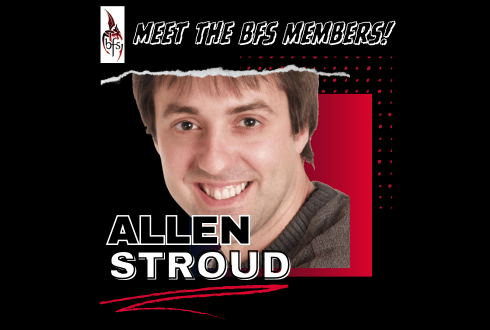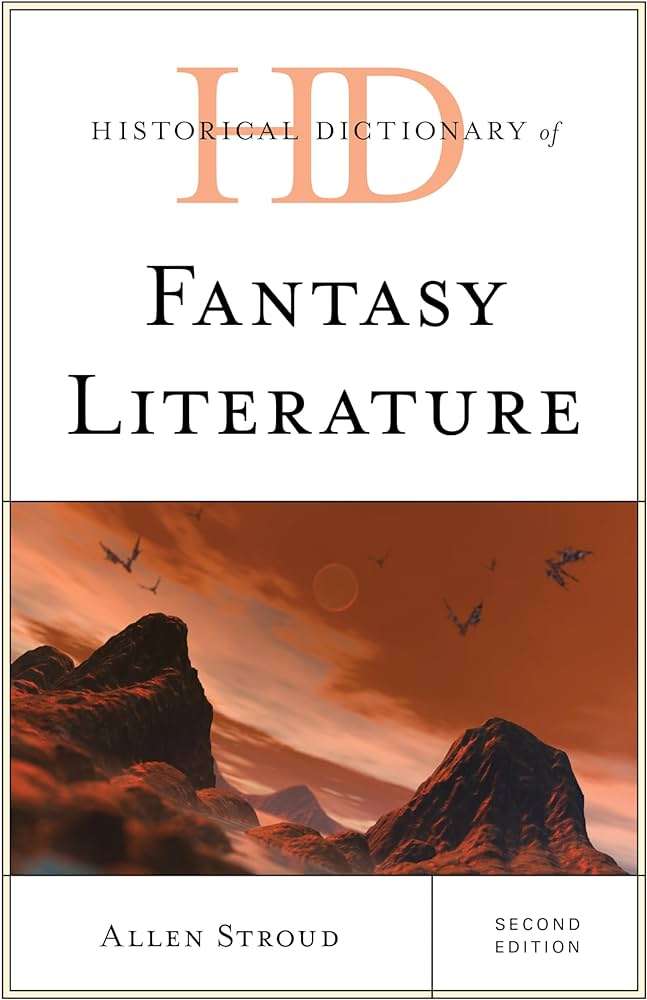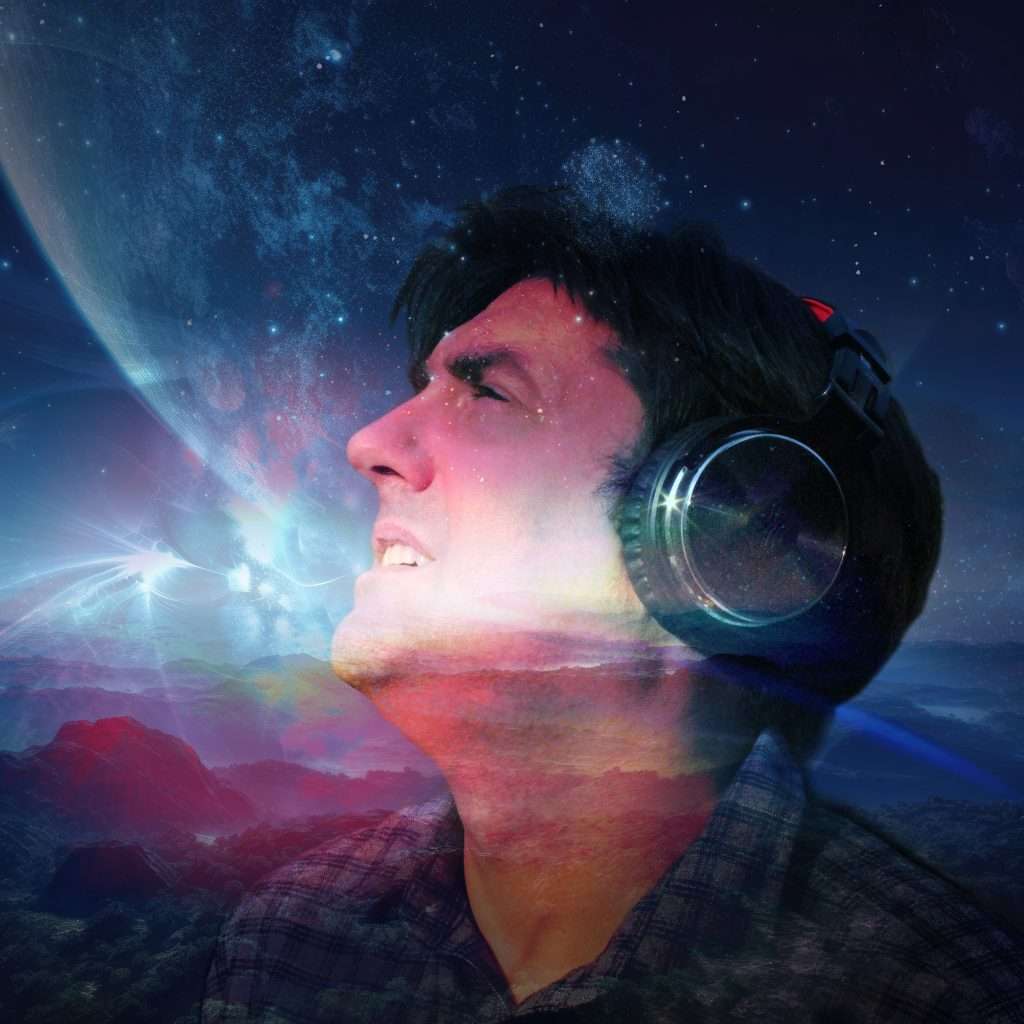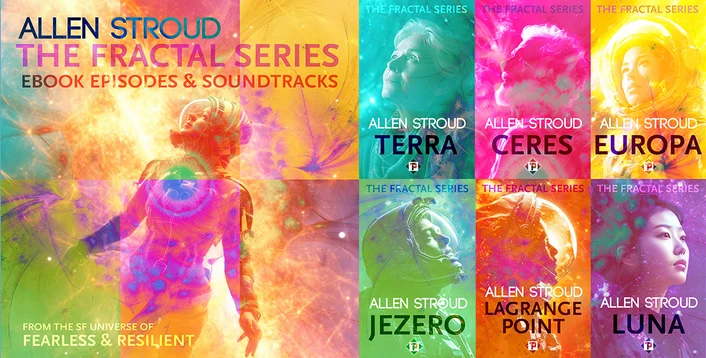We’ve implemented some new protocols around sending us messages via this website. Please email website “at” britishfantasysociety “dot” org for any issues.

For all things fantasy, horror, and speculative fiction
-
Announcement:

Meet Allen Stroud
Every Friday, we meet a member of the BFS and peer deep into their soul (or, at least, a form they filled out). Want to be featured? Email us: online@britishfantasysociety.org

Name, including preferred pronouns:
Allen James Stroud (He/Him)
Which region are you based in?
Bedfordshire UK
If you write, which genre: Sci-fi, fantasy, horror
Are you drawn to any specific SFFH sub-genres?
I write and read across all of the SF/F/H fields. I like a good story, no matter what genre or subgenre it fits in.
Your influences
Tell us about the book/film/thing that got you into SFFH: What was it? How old were you? What impact did it have on you?
What probably first got me into SFFH was reading The Hobbit as a child. I’d already become fascinated with Greek mythology at school and went through a phase of memorising everything. I knew all the Greek Gods, and loved their adventures. My late uncle then let me borrow his copy of The Hobbit, then his hardbacks of Lord of the Rings and finally, an old battered copy of The Silmarillion, which I still have.
How does that early influence show up in your work now?

World creation and the ways in which we inspire the imagination of readers through creating depth in the background research and such is certainly something that started with my reading of Tolkien. It was the basis for my work on different computer games and was the main topic of my Ph. D.
As author of The Historical Dictionary of Fantasy Literature (2023), I’m a scholar of the genre by necessity too. I needed a wide knowledge of the genre’s history and its current context when I was writing the draft for Rowman and Littlefield. I’m currently working on the next edition of The Historical Dictionary of Science Fiction Literature too.
Where do you draw your creative inspiration from?
As a lecturer, I prioritise encouraging my students to be creative. I try to build a creative culture in the classroom. There are a variety of different ways I try to help foster an ideas mindset. A key element is not to be afraid of suggesting ideas and getting them shot down. I try to be an ideas person in every conversation I get involved in, whether it’s about my ideas or someone else’s. I want to be a person who encourages creativity wherever and whatever the context.
In terms of my own work, I’ve tried to preserve the same imaginative mindset I had when I was reading Tolkien and playing with Lego when I was eight years old. Some of my ideas come from those early days, others emerge from new moments in my life.
When I get into something, I see it in my mind. I can’t draw, so writing is my usual way of getting it out. Occasionally, I find I’m composing music as part of that process too.
Who do you look to as a genre hero? Why?
I meet many authors and people in the games industry. I’ve been very privileged to work with people like Terry Pratchett, Julian Gollop, David Braben. Having written the Historical Dictionary, I had to research lots of writers and inspiring individuals. Sometimes, that’s a good thing, occasionally it isn’t. Our perception of those who inspired us when we were younger are very different to how we imagine them, and it can be unfair to lay that image on them.
Your work
You’re stuck in an elevator for 60 seconds with that hero, and they want you to describe your work. Give us the pitch.
I’m not sure I’d be pitching them on something, but here’s how I describe my work.
Science Fiction: Fearless is The Wrath of Khan meets The Expanse, Resilient is Die Hard on a Space Station. The Fractal series has a theme of representing disabled characters in science fiction, something that I don’t think we see enough of.
These days, my research work involves a lot of discussions with UK Government people. I get the opportunity to be in meetings where some of the real science is discussed. I pitch research projects to a variety of people all the time.
I don’t get a lot of consistent opportunities working on Fantasy and Horror these days. If my ‘hero’ is an editor for anthologies in either space, I’m always up for writing something.
What are you working on right now?
I’ve just finished a draft of Vigilance, the third novel in the Fractal Series. I’m just starting to get back into working on Fantasy and a Horror roleplaying game, along with the Historical Dictionary of Science Fiction Literature.
I’m also working on some other non-fiction research involving modern mythology and social media.
Where and when do you create/are you at your most creative?
I do a lot on the sofa. However, during 2022, I spent a lot of time writing whilst Karen and I were touring around the country in her camper van. Sometimes, being in a new space can really help to push a project on.
What’s the best advice you’ve received about creativity?
The best advice I’ve learned wasn’t told to me, I learned it through experience. You have to preserve your creative confidence. A key part of the process of being a writer is about dealing with rejection. Writers send submissions and get rejected all the time. Some of the standard advice people give is ‘don’t let them get you down’ and to ‘get back on the horse’ and send it out again.
I’m not sure that’s the right advice. I say it’s okay to feel bad about rejection. It’s okay to take a bit of time to process the situation, evaluate your reaction and evaluate the response given by whoever you sent off to. It is okay to assess the people sending the rejection too. Working together is an agreement between both parties. You can learn a lot about people by how they manage the rejection process.
So, sometimes it’s okay to get rejected, read the feedback and decide the person on the other end doesn’t know what they are talking about and isn’t worth working with.
What’s your writing soundtrack?
Like many writers, I use music to get into the moment of a story when I am writing. A big set of headphones plugged into the laptop with some laser projector lights can really help me immerse myself in my work.
I’m a little unique in that sometimes, the soundtrack to a project I’m working on is the music I’ve written as part of that project. The Fractal Series is an example of that. I composed a music album to go with the novels and shorter episodes. The music tracks are being released along with the new stories. They are available on Amazon, Spotify, Apple Music, etc.
The quickfire round
Sci-fi, fantasy or horror?
Any.
Quiet or loud?
Quiet.
Strict lines or genre blend?
Don’t mind.
Awards or bestseller?
I’ll take either.
Fiction or non-fiction?
I like both.
Poetry or prose?
Not poetry.
Plotter or pantser?
These days, pantser.
Reading or listening?
Either.
Notebook or computer?
Computer.
Favourite SFFH book of all time?
Too many good ones to pick from!
Last book you read?
Dark Dweller by Gareth Worthington
Any SFFH author on auto-buy?
No, that would eliminate the fun of making the purchase!
Favourite podcast?
The Missing Cryptoqueen. Bit of a synergy between making myths and media research.
The home stretch
What’s the best thing about being a SFFH writer?
Two things. One is helping others and celebrating their success. I’m rubbish at bigging myself up, but I do really like seeing other succeed. Second one, doing projects that as a child, I would have thought were amazing.
Time to plug your stuff! Where can we find you and your work? What have you got coming up? Consider this your advertising space.
Currently, I have the Fractal Series, my military science fiction series which is an ongoing collection of stories. Luna was published in January 2024 and Jezero comes out in February. Tracks from the Fractals album are currently being released on all popular music platforms with the album due for release in April. The Historical Dictionary of Fantasy Literature was also published in June 2023.

I’m currently updating my blog every week too. That’s a New Year’s resolution that I’m hoping to keep. You can find it here.

Allen will run a workshop on Fantasy Worlds and the Reader’s Imagination for the BFS on 18 February; get tickets and details here.
Explore the blog:
Blog categories:
Latest Posts:
Tags:
#featured (56) #science fiction (25) Book Review (264) events (44) Fantasy (231) Graphic Novel (13) horror (136) Members (62) Orbit Books (48) profile (43) Romance (17) Science Fiction (50) short stories (28) Titan Books (52) TV Review (15)
All reviews
Latest Reviews:
- THE HOUSE ON THE BORDERLAND by William Hope Hodgson
- Monstrum by Lottie Mills
- Mood Swings by Dave Jeffery
- Yoke of Stars by R.B. Lemberg
- Hera by Jennifer Saint
- The Black Bird Oracle by Deborah Harkness
- RETURN OF THE DWARVES By Markus Heitz
- Delicious in Dungeon
- Toxxic by Jane Hennigan
- THIS ISLAND EARTH: 8 FEATURES FROM THE DRIVE-IN By Dale Bailey
Review tags:
#featured (2) Action (4) Adventure (4) Book Review (28) Fantasy (18) Featured (2) Feminist (2) Gothic Horror (3) Horror (14) Magic (3) Orbit Books (3) Romance (6) Science Fiction (5) Swords and Sorcery (2) Titan Books (7)